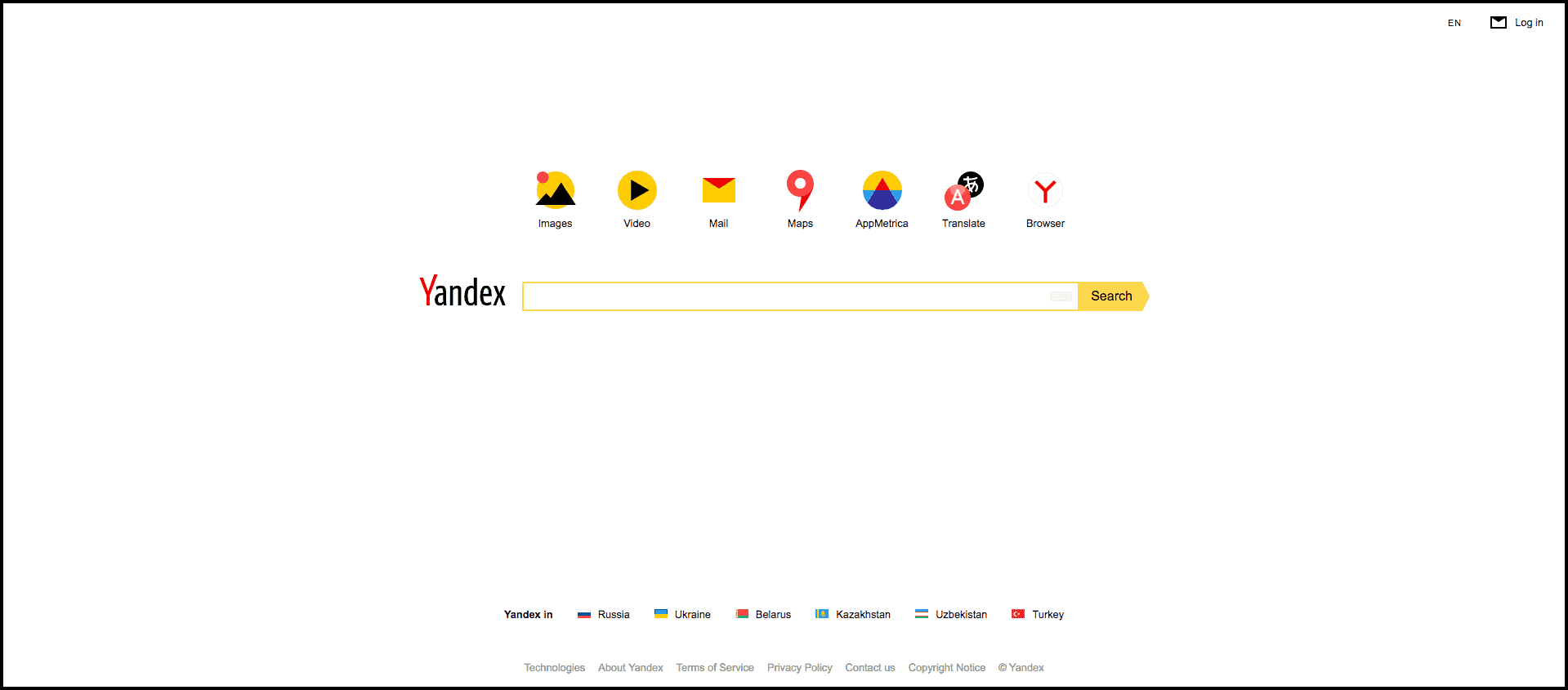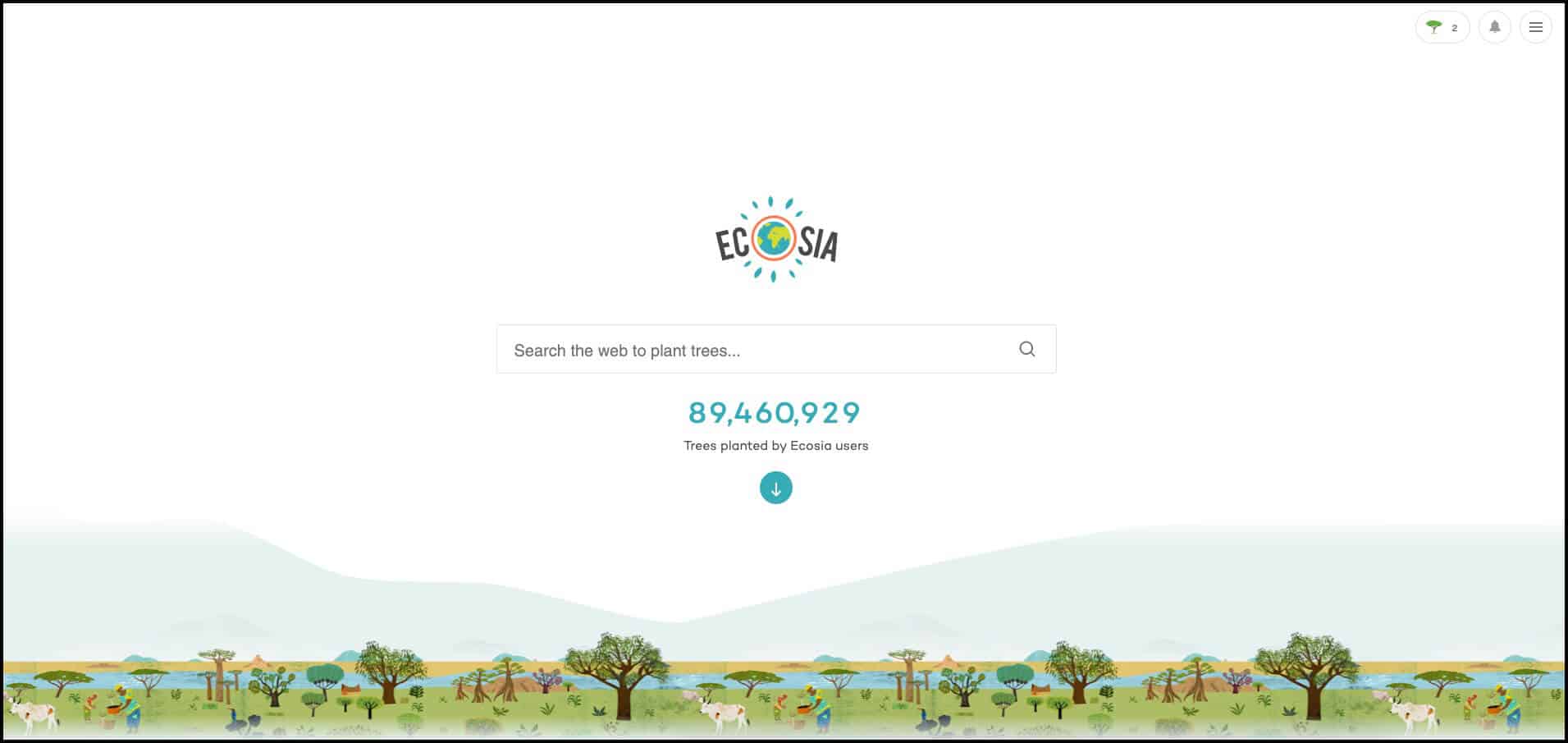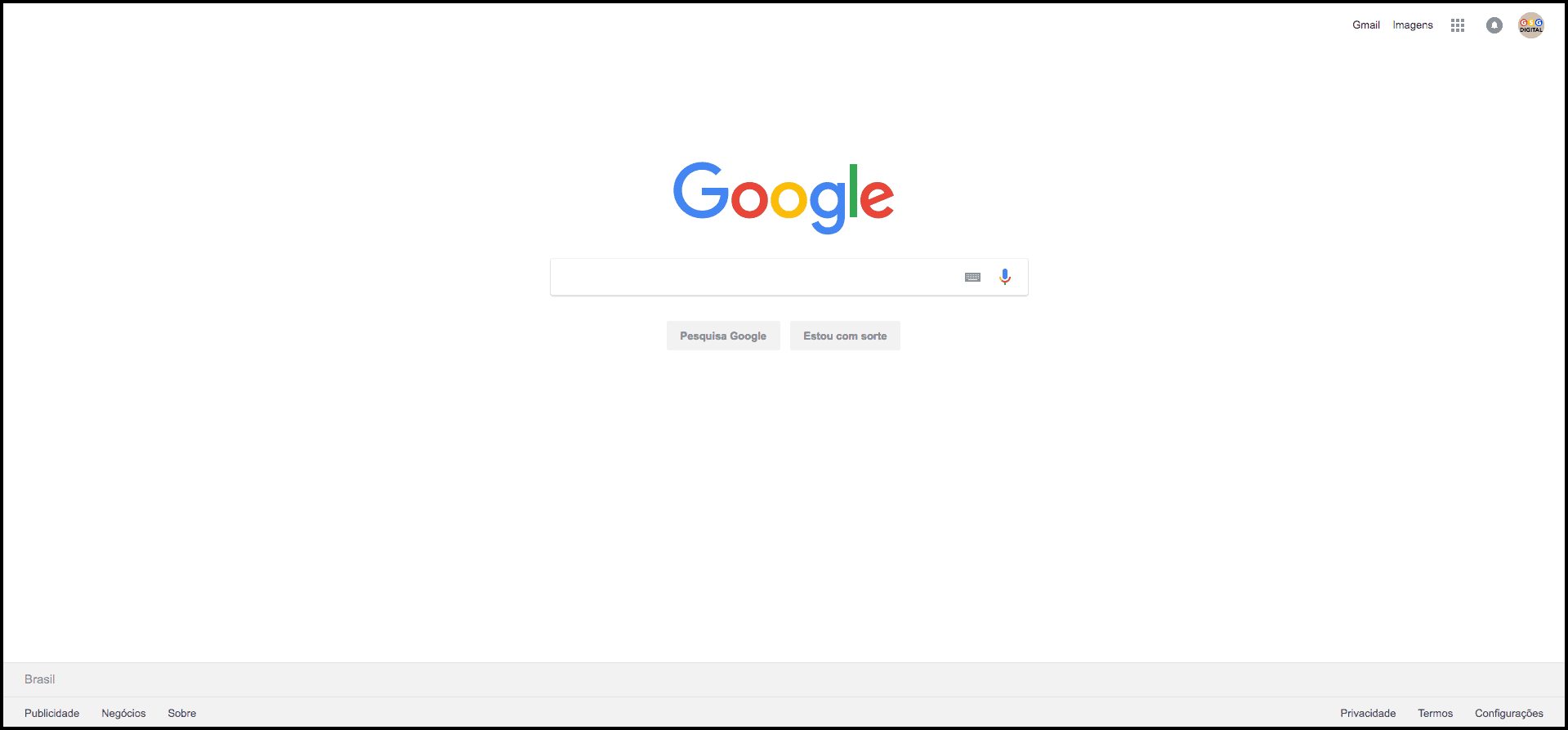
Do you know what are the alternative search engines to Google?
Obviously the internet giant is the most popular with users, but Google collects your data while you browse, which for many is a serious privacy issue.
Another negative point is the fact that it is not available globally. In China, for example, an extremely important market, it has not operated since 2010 due to non-compliance with local laws.
Finally, we also have those who just don’t like using Google services, preferring solutions from other brands or from non-profit entities.
This is where alternative internet search engines come in, they are valid options for those who want to search for something online, and many have very interesting features in front of Google. Check out:
1. Bing

Perhaps Google’s biggest rival, Bing is Microsoft’s solution for web searches, and currently ranks as the 2nd most used search engine on the internet.
It has a market share of approximately 6%, which is largely due to its standard implementation in various services of the owner of Windows, such as Cortana or Edge and Explorer browsers.
When you access it, you are faced with the greatest differential of the search engine, your home screen is rotating images in the background, including landscapes; works of art; animals; objects; among others.
You can search for sites, images, videos, locations on the map and news on Bing. Much of the essential filters are also available to refine the results.
Visually, it is possible to notice that Bing adopts a larger font size as a standard, which added to the side ads, can make the page visually polluted. Apart from this detail, it follows the clean design style .
Curiosity: Yahoo also uses search results from Bing and its ad network, abandoning its own search engine since 2009 when it signed an agreement with Microsoft.
2. DuckDuckGo

If you are from the Linux world, you may be more familiar with DuckDuckGo, as the search engine comes as standard on many open source browsers.
If you are not from this medium, you probably have never heard of this search engine before. That’s because DuckDuckGo’s proposal is focused on privacy, since the browser does not collect data about you, being 100% anonymous.
It has been gaining more and more popularity due to the frequent leaks of personal data in recent years, added to the spying that several governments do on their citizens, and also by those who do not want to generate traces on the web.
Currently its presence is approximately 1% in the global market, which may seem little, but it guarantees an average of 30 million searches on the search engine monthly.
Even without data collection, the search engine is not 100% impaired, and offers the main features that you find in rivals, although the local results are not so accurate.
Interestingly, there is also presence of advertising on the search engine (one of the reasons Google claims to collect its data), which is often served by Microsoft’s rival Bing. Apart from this feature, DuckDuckGo also accepts donations to stay online.
To close, the standard design part of the search engine is very similar to the traditional one, but there is the option of using other themes, being able to customize the pages with other color patterns, including a night mode version.
3. Baidu

Due to the censorship that the Chinese government imposes on the country’s internet, services known to the West as Google, Facebook, WhatsApp, among others do not operate there.
The way found to solve this problem was to create local services, as is the case with Baidu, a technology company that is practically a Google of China.
There, it dominates approximately 71% of all searches made in the country. But on a global scale, its share is no more than 0.90%.
Baidu has no translation into other languages, and most of the results come from local sources, so its use is limited to those who speak the language and want to know more about this part of the world.
Among the resources offered, we have a search for websites, images, videos, music, news, maps, and books. But just like the American giant, Baidu has several other services, tools and apps that bear its name.
On the design side there’s nothing out of the curve, as the layout and color patterns are extremely similar to Google’s. Perhaps the most notable difference is for the larger advertising space in the results.
4. Yandex

At the beginning of the internet, several search engines were born around the world, first becoming popular in their countries of origin and then conquering new territories.
Obviously, most of these projects failed or were incorporated into the giants we know, as was the case with Cadê?, the first 100% national search site of Brazil that is currently owned by Yahoo.
However, there were exceptions, one of which is Yandex, a Russian search engine that is more successful than Google. There is almost 54% of participation, against 42% of Google, which is seen there as the 2nd option for many.
But unlike Baidu, Yandex’s success in Russia and some other surrounding countries is not due to censorship or local regulations, but thanks to its popularity.
Having been launched in 1997, 1 year before Google, and having already been adapted to the characters of the Cyrillic alphabets, Yandex had an advantage, becoming a local reference to the present day.
In technical terms, Yandex does not present anything very different from other search engines, there is a search for websites, images, videos, news and locations on the map. Content filters are also there to refine the results.
Although its largest markets are Russia, Ukraine, Belarus, Kazakhstan, Uzbekistan, and Turkey, Yandex operates globally, with its website translated into English and exhibiting results from other countries.
In the visual, Yandex adopts a modern and clean style on its pages, with emphasis on the yellow used as the main color, something that deviates from the blue/black pattern of the main search engines.
Like other search engines, there is also advertising in the results, but interestingly it is less intrusive, being only available at the bottom of the pages.
5. Ecosia

If you want to make your contribution to help the planet, perhaps using the search engine Ecosia could be a great option.
Unlike the others, this is a non-profit project , and its main objective is to strengthen reforestation around the world.
The same manages to do this with his share of the advertising gains displayed in the search results, which reverts on average 1 tree for every 45 searches carried out by Ecosia.
The entire operation of the website is 100% transparent, revealing the project’s gains and expenses, in addition to the initiatives chosen to fulfill the reforestation mission in the most diverse countries.
Ecosia, like Yahoo, uses Microsoft’s Bing search technology, but improves search results with its own algorithms.
The design of the site follows the traditional style adopted in other web search engines, only its homepage that differs a little, showing more information about its “ecological search”.
It is possible to adopt Ecosia as a standard search engine in several internet browsers, in addition to being able to use an extension in Google Chrome or install apps for Android and iOS devices.
Conclusion: Is there an alternative to Google?

Look, being very frank with you now: NO. The truth is that Google is so popular because of something simple: It finds what you want to find 99.9% of the time.
And this is due to the fact that their algorithms are more improved, mainly because of their data collection, thus knowing their tastes and location, for example, with this the results tend to be more assertive than in rivals.
Alternative seekers sin at this very point. DuckDuckGo protects your privacy, but it sacrifices local search results. Baidu is limited to China and government censorship. Yandex is even an option, but its focus is Russia.
The one that fares best among all alternative search engines is Bing, which already ranks second in the global search rankings, and works more similar to Google, with results much closer to its rival. (With that in mind, exchanging it for Ecosia has the environmental bonus.)
In short, Google has successfully monopolized this sector of the internet, and it will be difficult for another competitor to get rid of it in the medium or long term. So, using it is the only viable alternative for most, but if by chance it is not ideal for you, at least now you know interesting alternatives.
So, did you already know all these alternative search engines to Google? Are you going to use any of them from now on? Comment below and share any others that we did not put on the list!
